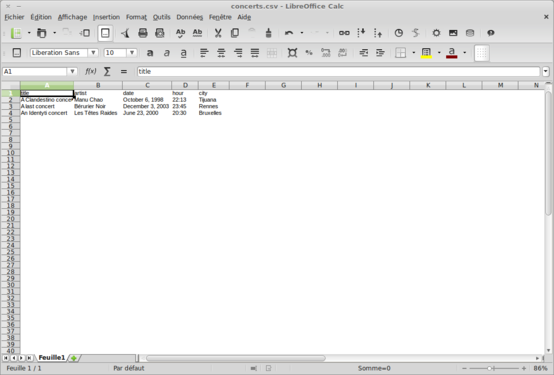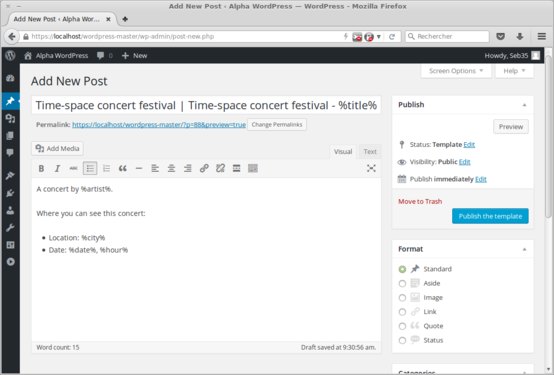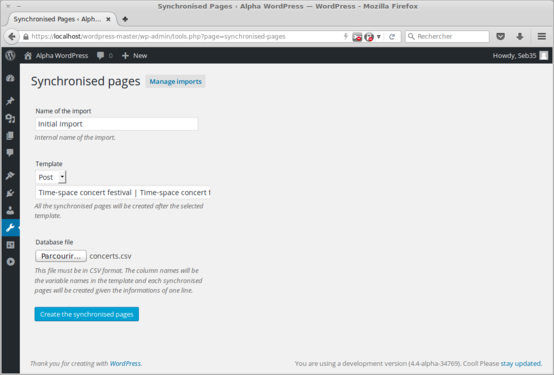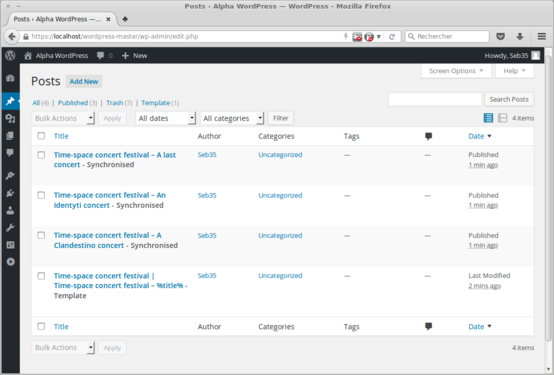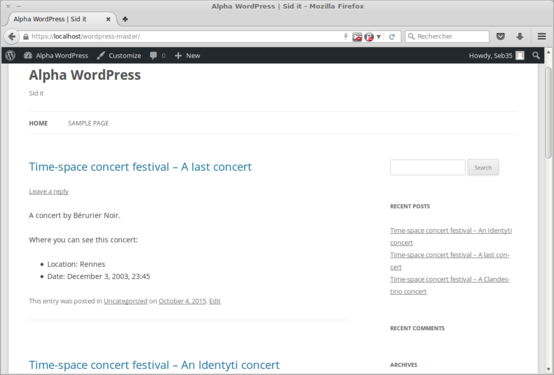Différences entre les versions de « WordPress plugin Synchronised Pages »
(Description of my WordPress plugin Synchronised Pages) |
(+version 0.2.0 (public)) |
||
| (Une version intermédiaire par le même utilisateur non affichée) | |||
| Ligne 20 : | Ligne 20 : | ||
This section describes how to install the plugin and get it working. | This section describes how to install the plugin and get it working. | ||
# Download the code from GitHub: https://github.com/Seb35/Synchronised-Pages/archive/master.zip | |||
# Upload the directory <code>synchronised-pages</code> in the <code>/wp-content/plugins/</code> directory | # Upload the directory <code>synchronised-pages</code> in the <code>/wp-content/plugins/</code> directory | ||
# Activate the plugin through the “Plugins” menu in WordPress | # Activate the plugin through the “Plugins” menu in WordPress | ||
| Ligne 36 : | Ligne 37 : | ||
Possibly in the future, an option will give the choice. | Possibly in the future, an option will give the choice. | ||
=== Is it the same thing as “child pages”? === | |||
Not exactly. Child pages is a feature specific for the post type “Page” (not standard “Posts”) where you can say a given page is a child of some other page, it is useful to show a hierarchical list of pages. Here the synchronised pages are only similar in their layout. But if you want make that all synchronised pages have a parent page, it’s up to you to make it – you can automatically get the list of all synchronised pages from a given import. | |||
== Changelog == | == Changelog == | ||
=== 0.2 === | |||
Beta version. First public version. | |||
=== 0.1 === | === 0.1 === | ||
Current version. Working and stable plugin, could be 1.0 but some parts of code should be rewritten. | Current version. Working and stable plugin, could be 1.0 but some parts of code should be rewritten. | ||
== Development == | |||
Development is done on GitHub, in the repository [https://github.com/Seb35/Synchronised-Pages Seb35/Synchronised-Pages]. You can report bugs or ask features in the [https://github.com/Seb35/Synchronised-Pages/issues bug tracker], and if you are a developer you are welcome to submit [https://github.com/Seb35/Synchronised-Pages/pulls pull request]. | |||
Versions on GitHub will be send back to the officiel WordPress repository. | |||
[[Category:WordPress]] | [[Category:WordPress]] | ||
Version actuelle datée du 4 octobre 2015 à 12:47
The WordPress plugin “Synchronised Pages” empower you in creating a lot of pages according to a template in which you can remplace some parts of the template with specific informations contained in a database.
Description
An easy way to describe this plugin is to give an example: imagine you want to create a small website for a festival in which each concert has specific hours, title, band/musicians, description… Without this plugin, you have to create by hand all the pages. With this plugin you can put all informations in a spreadsheet, create a template for the pages, and then automatically generate all the pages.
- The three steps of the workflow
- The result
Installation
This section describes how to install the plugin and get it working.
- Download the code from GitHub: https://github.com/Seb35/Synchronised-Pages/archive/master.zip
- Upload the directory
synchronised-pagesin the/wp-content/plugins/directory - Activate the plugin through the “Plugins” menu in WordPress
With default settings, you can only generate pages, not posts; you can change this setting in the menu Settings > Writing > Synchronised Pages.
Frequently Asked Questions
Are the templates public?
No. They are similar to Private posts.
If some pages already exist, are they remplaced or re-created?
Currently, pages whose the title already exist are remplaced, so the old content is overwritten by the generated new content.
Possibly in the future, an option will give the choice.
Is it the same thing as “child pages”?
Not exactly. Child pages is a feature specific for the post type “Page” (not standard “Posts”) where you can say a given page is a child of some other page, it is useful to show a hierarchical list of pages. Here the synchronised pages are only similar in their layout. But if you want make that all synchronised pages have a parent page, it’s up to you to make it – you can automatically get the list of all synchronised pages from a given import.
Changelog
0.2
Beta version. First public version.
0.1
Current version. Working and stable plugin, could be 1.0 but some parts of code should be rewritten.
Development
Development is done on GitHub, in the repository Seb35/Synchronised-Pages. You can report bugs or ask features in the bug tracker, and if you are a developer you are welcome to submit pull request.
Versions on GitHub will be send back to the officiel WordPress repository.
